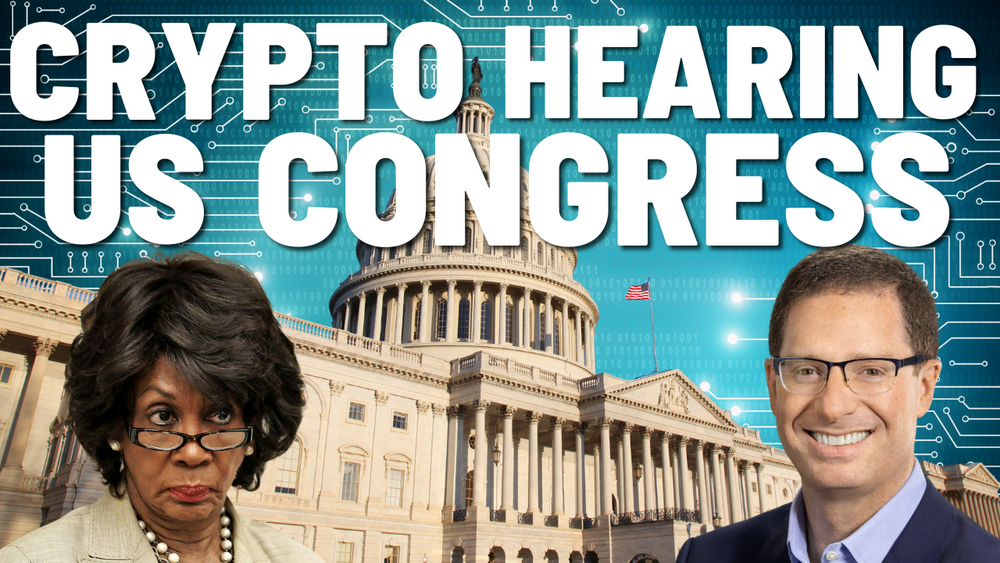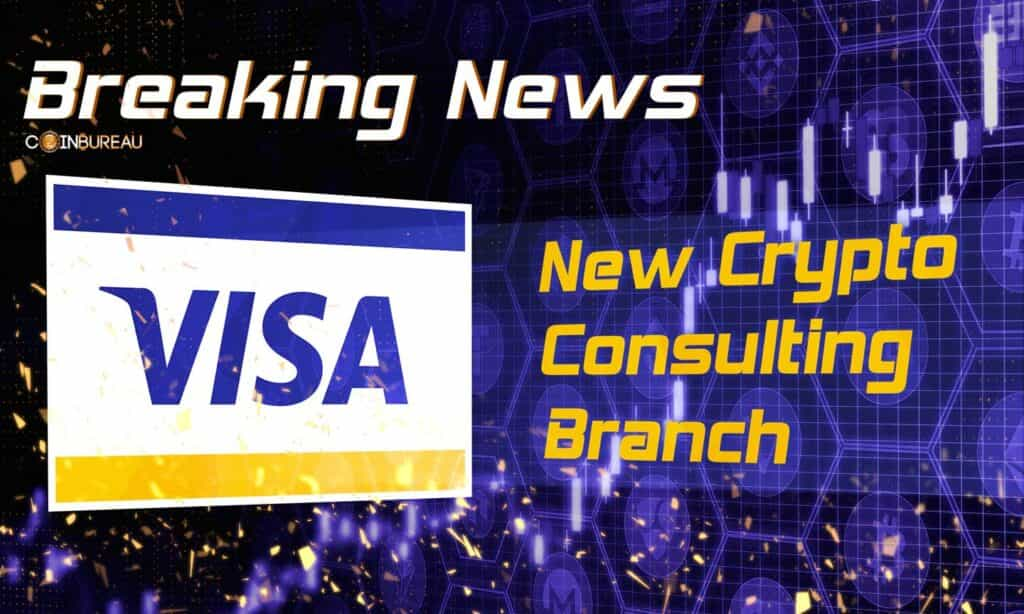Monday, December 13th, 2021
|
|
Your Weekly Update On All Things Crypto |
|
What Happened When Crypto CEOs Met With Congress? |
The CEOs of many prominent cryptocurrency startups travelled to Capitol Hill for a Congressional hearing. The topic of the hearing was reportedly on 'Digital Assets and the Future of Finance: Understanding the Challenges and Benefits of Financial Innovation in the United States', and it was held by the House Financial Services Committee.
Some of the more notable attendees included FTX CEO, Samuel Bankman-Fried. FTX is one of the world's biggest and most active cryptocurrency exchanges. Coinbase Global CFO Alesia Haas, Circle CEO Jeremy Allaire, Paxos CEO Charles Cascarilla, Bitfury CEO Brian Brooks, and Stellar Development CEO Denelle Dixon were all in attendance as well.
What were the main highlights?
Although the CEOs requested customized laws and regulations to respond to the developing cryptocurrency sector, they also warned against severe restrictions which could end up stunting innovation. Stablecoins and how they functioned were also reportedly discussed.
The legislators, led via California Democratic Representative Maxine Waters who acted as the committee's chairperson, asked various technical questions. Representative Waters went on to say that the overall popularity of digital assets such as cryptocurrencies has greatly risen throughout the ongoing COVID-19 global pandemic, and that the existence of cryptocurrencies has thus vastly 'contributed to working people searching for viable alternatives so that they can financially recover by investing in numerous cryptocurrency assets'. However, she added, as things stand right now, cryptocurrency markets lack a centralised regulatory framework, making digital asset investments prone to fraud, scams, money-laundering, manipulation, and other kinds of misuse.
Representative Patrick T. McHenry of North Carolina nevertheless stated that his colleagues might not be as tech-savvy as they ought to be in order to effectively design new rules and regulations, after which he then asked as to whether anyone in the current administration is actually knowledgeable enough about cryptocurrencies to create an appropriate regulatory framework or not. He then added that the U.S does not require politicians to hastily regulate and restrict out of anxiety and paranoia rather than attempting to comprehend what this new kind of technology truly is and what it may lead to. This dread of the unknown, he concluded, as well as the push to regulate before knowing, will in all likelihood inhibit American inventiveness and place the country at a competitive disadvantage.
What to expect going forward?
Ultimately, the CEOs agreed that regulation might indeed be beneficial since it would define the role of numerous products and services while minimising any future confrontations between service providers and regulators. Samuel Bankman-Fried in particular stated that regulation is very likely and that it's essential. He added that more regulation would be a healthy development for the sector, if done properly.
In the end, the hearing took place at a time when governments all over the world are deciding whether to follow China's example and entirely prohibit or regulate cryptocurrencies as well as digital assets, or to alternatively allow the embryonic technology to thrive as it has in El Salvador. Other notable developments which occurred included the proposed Token Taxonomy Act, which seeks to define digital tokens as not being securities.
|
Stark Ware Just Dropped Game Changing Innovation |
The cryptocurrency, blockchain and DeFi sector is constantly evolving with the addition of all kinds of new and innovative technologies, projects and protocols. However, there is one that everyone should be keeping an eye on and that is StarkNet.
StarkNet is a decentralized permissionless ZK-Rollup. It runs as an L2 (Layer-2) network over Ethereum (ETH), allowing any dApp (decentralized application) to attain unlimited scale regarding its respective computation, all without jeopardising Ethereum's safety or composability.
What makes StarkNet so special?
One of the most recurring problems within this industry is that of scalability. StarkNet promotes scale while maintaining L1 (Layer-1) Ethereum security via the creation of STARK proofs off-chain, after which it would then subsequently confirm the proofs on-chain. In this way, StarkNet offers composability near the level of Ethereum itself, allowing for simple and straightforward development as well as innovation.
Simply put, through the intuitive usage of StarkNet Contracts, developers will hence be provided with the ability to quickly deploy any business logic on StarkNet. To that end, StarkNet Alpha is now live on the mainnet, through which the developers can take it one step further and implement the aforementioned business logic of preference in a smart contract, after which it would be a simple matter of permissionless deployment on StarkNet.
Achievements
There are various milestones that StarkNet has already managed to achieve, with numerous more expected to be accomplished before long. As of right now, the smart contracts all support general computation, and they can even interact with one another too, which will reportedly enable further composability. Furthermore, L1 to L2 interoperability has been added, and complete Layer-1 security has been administered via on-chain data (Rollup).
In terms of future goals, the project shall be adding a Solidity to Cairo Compiler as well as StarkNet full nodes soon. There shall also be a wide range of data availability solutions which shall be offered, and a permissionless Sequencer and Prover is in the works too.
Lastly, in terms of its ecosystem, there is a wide array of useful educational resources available (where you can actually learn how to write and deploy your very own StarkNet contract), in addition to all kinds of innovative tools such as StarkNet JS, Devnet, Cairo Docker, Cairo Playground, Voyager Block Explorer, Warp EVM Transpiler, and more. Finally, it has a supportive and active community and the team is also usually quite active on Discord.
|
|
|
|
RAILGUN keeps your actions secret, your privacy protected, your identity secure - thus giving you anonymity. |
|
|
Visa Launches Crypto Consulting Service In Bid For Mainstream Dominance |
Visa is introducing new advisory and consultancy services to assist its customers in navigating the cryptocurrency sector. Visa has since acknowledged UMB, an American bank, as a client which is already utilising its new advisory services.
The world-renowned payments processor announced this past Wednesday that its crypto-advisory service, contained inside its respective consulting and analytics department, will provide information and guidance to numerous financial institutions, firms, retailers, and various other businesses on topics ranging from implementing cryptocurrency-oriented features to examining NFTs.
Visa to cash in on crypto craze?
The initiative is Visa's newest attempt to expand its presence in the cryptocurrency market and industry. As per Nikola Plecas, Visa's European cryptocurrency head, the organization handled $3.5 billion in digital currency transactions via its cryptocurrency-connected card schemes from October 1st, 2020 to September 30th, 2021.
Nikola went on to say that a sizable portion of large exchanges worldwide have millions or perhaps even tens of millions of active users. He then added that Visa allows customers to spend their cryptocurrencies at more than 80 million merchants. Visa’s Cuy Sheffield also called cryptocurrencies ‘cool’ during a recent conference.
The business is also working on solutions for stablecoins, which are virtual tokens pegged to the value of fiat currencies, generally the dollar. Some of the more notable stablecoins include but are not limited to USDT, BUSD, DAI, and USDC. Efforts concerning central bank digital currencies are also reportedly being worked upon.
What’s the endgame?
Visa expects that its new consulting services will hopefully aid in the growing mainstream acceptance of cryptocurrencies. The credit card company, like major competitor Mastercard, views cryptocurrencies as a crucial growth prospect as it goes beyond card-based transactions.
Moreover, leading payment networks have experienced greater competition from a slew of new financial companies and businesses within the past few years. Emerging developments like open banking, which intends to provide competing fintechs access to customer bank information as well as payment capabilities, threaten to destabilise their business model.
Meanwhile, huge Internet businesses are putting pressure on Visa. Amazon announced last month that it will no longer accept Visa credit cards in the United Kingdom owing to the company's ‘exceedingly high costs’. Additionally, in both Singapore and Australia, the e-commerce behemoth has taken similar action against Visa.
Nonetheless, the future looks promising. According to a recent Visa poll, 94% of Americans are already aware of cryptocurrencies, and nearly one-third admitted to having used the digital assets as either a medium of exchange or an investment.
For Visa, the growing popularity surrounding cryptocurrencies hence represents a significant new sector and massive growth potential, according to Nikola. He concluded that the company shall therefore continue to focus on building this side of the organization even more for the foreseeable future.
|
|
Bitcoin: A Ticket To The Show
|
|
Watch the Crypto congressional hearing highlights in 12 minutes
|
|
StarkNet ByteSized - Video 3 -Compile, Deploy and Interact with the Contract |
|
Subscribe to the CryptoWeekly YouTube Channel |
|
Follow CryptoWeekly on LinkedIn |
|
Bitcoin Continues Rough Month As Multiple Factors Turn Markets Risk Off |
Altcoin Dominance Forms Bullish Ascending Triangle on Weekly Timeframe |
|
European Blockchain Convention | Dec 13-16 | Virtual |
|
European Blockchain Convention is a four-day online event filled with inspiring keynotes, panel discussions, workshops, one-to-one meetings and high-level networking.
The place to meet 2.500+ entrepreneurs, investors, corporations, developers and tech leaders from the Blockchain industry.
|
|
|
|
Want to Sponsor the Newsletter? |
|
We at CryptoWeekly are not Financial Advisors. None of the content or opinions expressed in this newsletter should be considered financial advice. We highly recommend that you do your own research before investing in any project within or outside the cryptocurrency space. |
|
|
|
|
|
|













